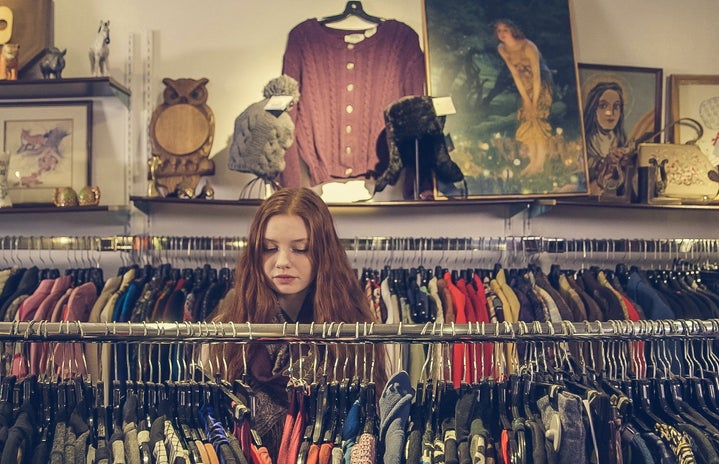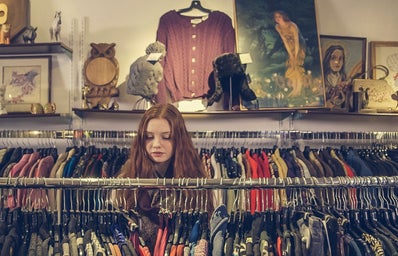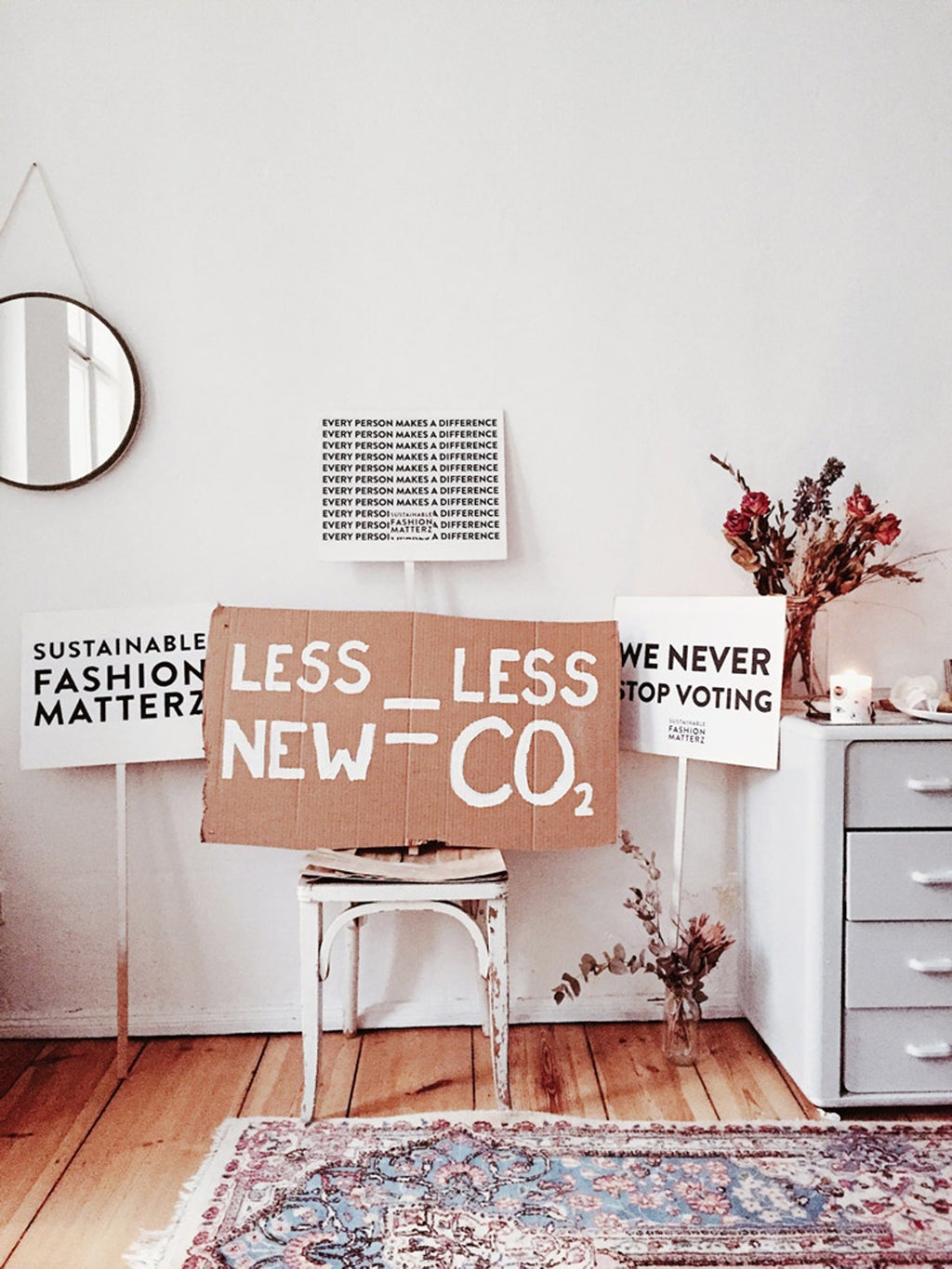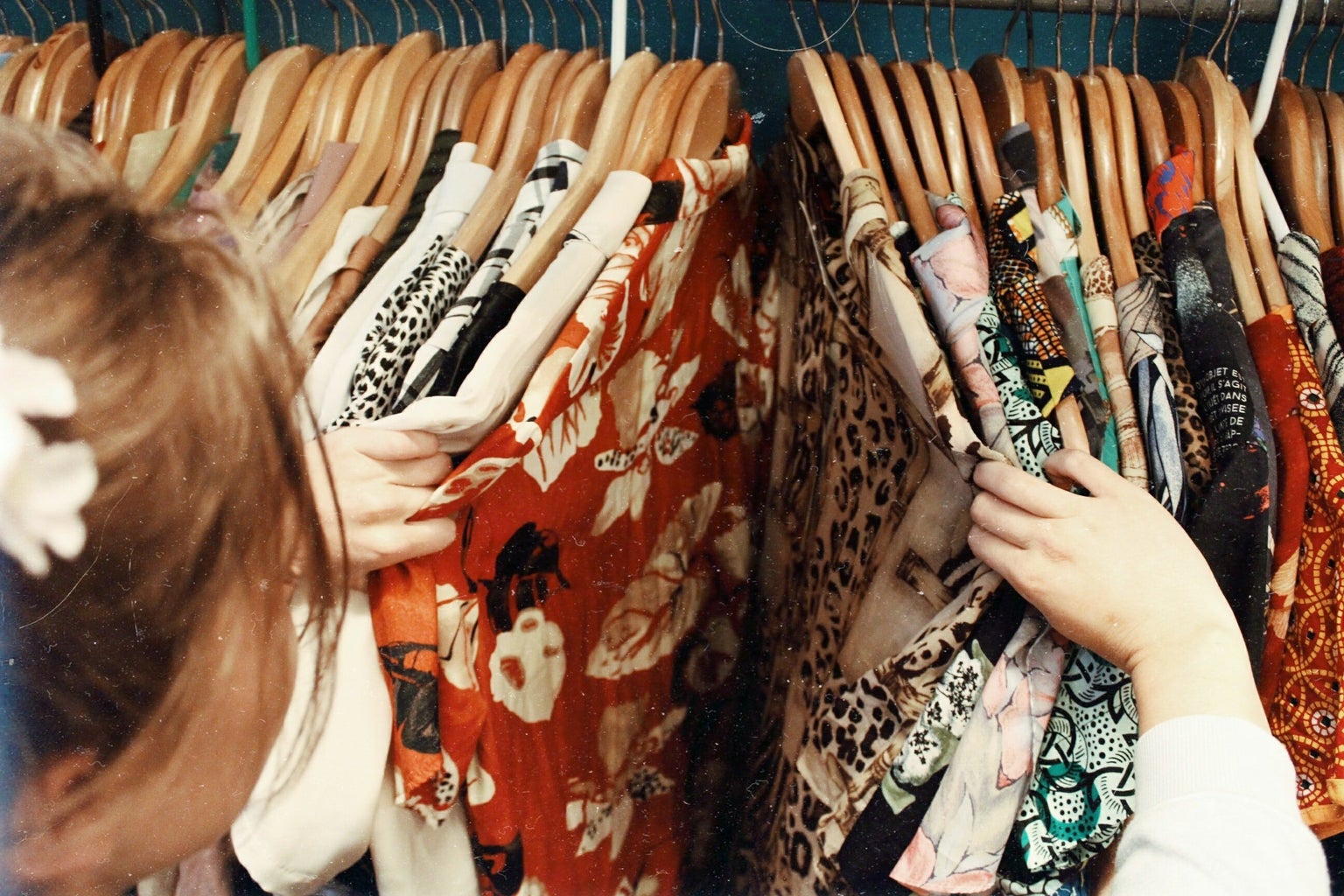TikTok, YouTube and Instagram are all platforms that contribute to the influx of microtrends in modern society. Due to the accessibility and highly addictive nature of these platforms, fashion trends are constantly erupting and, equally as fast, dissipating. The omnipresent sometimes even unconscious influence from creators on our fashion style is undeniable, so how can we follow trends whilst also prioritising sustainability? Here are some ideas:
- Re-purpose your wardrobe
-
Hang on to old favourites! Due to the cyclical nature of fashion trends, old styles are constantly cropping back up.
Trends from the 70s, 80s, 90s and the 2000s are still influencing fashion trends in today’s society. It’s worth looking into a relative’s wardrobe to check for any pieces hanging around that might be back in trend. Even pieces that on paper may not be very trendy, can be re-styled and even DIY-ed to fit your aesthetic. Get creative!
This not only saves you money but is also a sustainable way to wear trendy clothing.
- Second hand shopping
-
Charity shops are full of plenty of gems which have been donated by both the older and younger generations. Luckily, Bristol has plenty of charity shops to choose from, Cotham and Whiteladies Road are home to many of my favourite charity shops.
Vintage shops are also handy if you’re looking for a more refined collection of clothing. There are multiple vintage shops in Bristol.
Reselling apps such as Depop and eBay, to name a couple, are also great ways to sell unwanted clothing and to shop sustainably for trends. The ‘suggested for you’ and ‘based on your likes and saves’ sections on Depop allow you to shop easily. Depop sellers are quick to catch onto trends and the platform is a great way to find trendy clothing. You can also find absolutely anything on eBay if you search hard enough. You can either bid on an item, which is often a good way to get a bargain (if not very stress-inducing), place offers on items, or buy the item immediately with the ‘buy it now’ option.
- Swapping clothing
-
Swapping clothing that you have exhausted is a great way to spice up your wardrobe whilst refraining from purchasing new clothes
‘Don’t Shop Swap’ is an initiative to reduce spending on fast fashion through the swapping of clothes.
How it works: Send your unwanted clothing to ‘Don’t Shop Swap’ using their swap bags, earn swap coins, and spend them on the website!
“Not only does sharing reduce the number of clothes heading to landfills, but it also increases our feeling of connection to others”
LYDIA HARTLEY – FOUNDER OF ‘DON’T SHOP SWAP’
Bristol University’s Fashion Forward Society recently held an event with ‘Don’t Shop Swap’. Attendees bought old, unwanted clothing and in return received ‘Don’t Shop Swap’ coins based on the value of their donated clothing. People were then able to either shop from the donated clothing or save the coins to use on their online website.
- Re-defining ‘trendy’
-
I believe that redefining the term ‘trendy’ is a huge step towards sustainable shopping.
Being trendy should not have to involve constantly chasing after micro trends, but should be about feeling comfortable in the clothes that you enjoy wearing. By developing your own personal style using sustainable shopping methods, you can express yourself whilst also respecting the planet.




